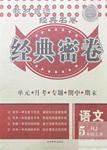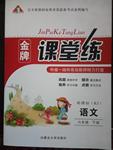题目内容
When parents use sarcasm(讽刺)to make jokes with their young children, do the kids see the humor? Not likely, according to a Canadian researcher who has completed a study showing that children need to be 10 or older before fully getting the idea that sarcasm can be funny or even rude. “The results offer good advice for everything from the content of children’s television programming to understanding rude behaviors,” University of Calgary psychologist Penny Pexman said. “Our study suggests that the 5-year-olds are beginning to understand the simplest form of sarcasm and are getting better at it, but still by the age of eight they really don’t find it funny. So there is disconnection there,” said Pexman, who has been studying sarcasm for the past six years. “They can see that the person means the opposite of what they are saying, but they don’t find it humorous.” In addition, children under the age of 10 almost always took a sarcastic remark as a serious one, even when it was intended to be humorous. It is still not completely clear what determines how children understand sarcasm, but Pexman said factors(因素)could include the amount used at home, their social environment and the types of television shows they watch. In fact, adults write kids’ television programs but much of the humor may be lost on the intended audience, she said.
1.One of the aims for Pexman to study sarcasm is .
A.to play jokes with young children
B.to help children learn more humor
C.to guide kids’ television programming
D. to make children learn the funny world
2.What can we conclude from the passage?
A.The 5-year-olds were too stupid to understand sarcasm.
B.The 8-year-olds knew sarcasm was funny and rude.
C.The 11-year-olds always took a sarcastic remark seriously.
D.The 12-year-olds could find sarcasm funny or even rude
3.Which of the following is Pexman’s conclusion?
A.It’s not a good idea for parents to tell children what humor is
B.Humours written by adults sometimes fail to work among children.
C.Kids’ sense of humor is decided by the type of TV sets at their home.
D.Adults shouldn’t write kids’ TV programs since they don’t have a sense of humor
CDB

 同步学典一课多练系列答案
同步学典一课多练系列答案 经典密卷系列答案
经典密卷系列答案 金牌课堂练系列答案
金牌课堂练系列答案 三新快车金牌周周练系列答案
三新快车金牌周周练系列答案